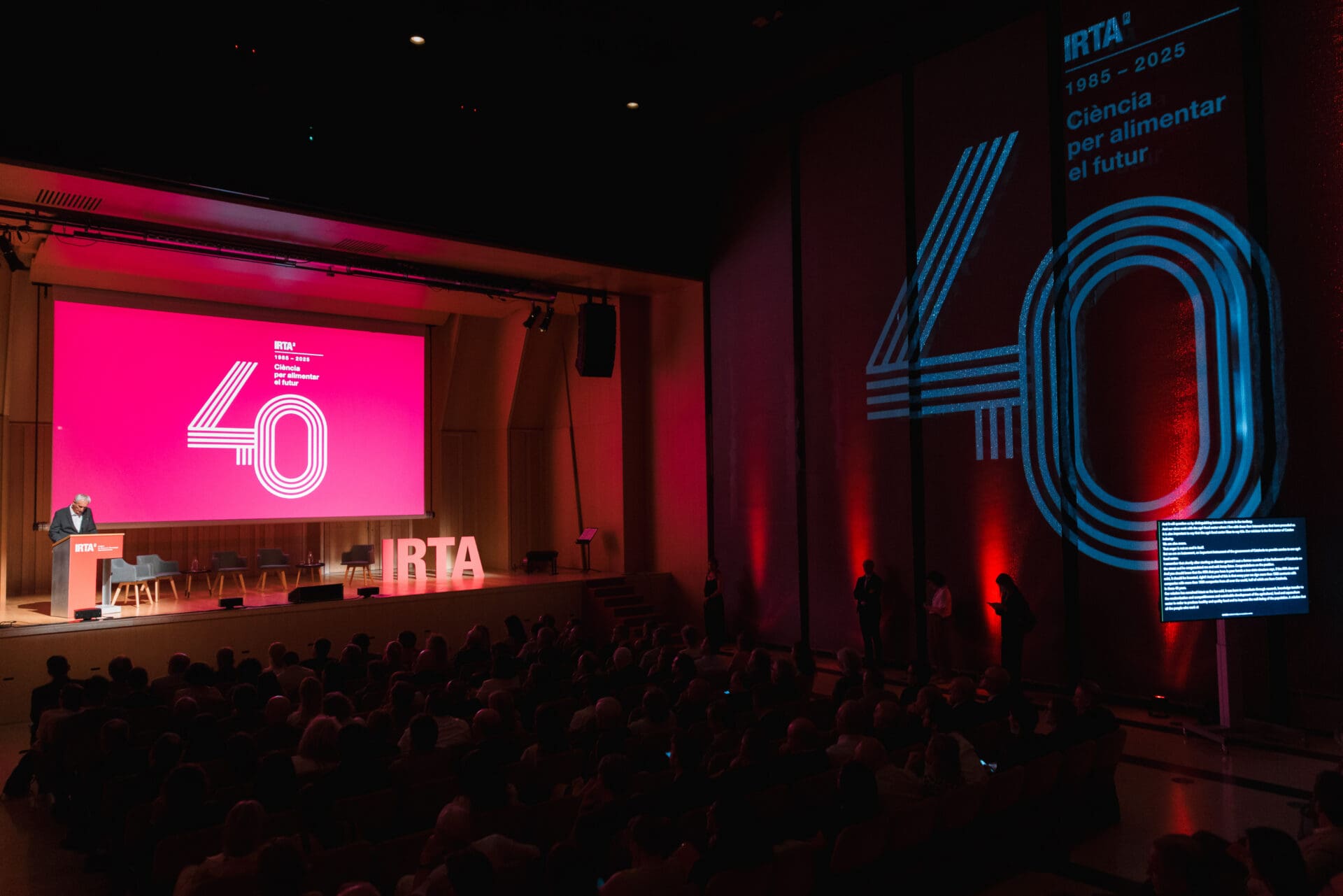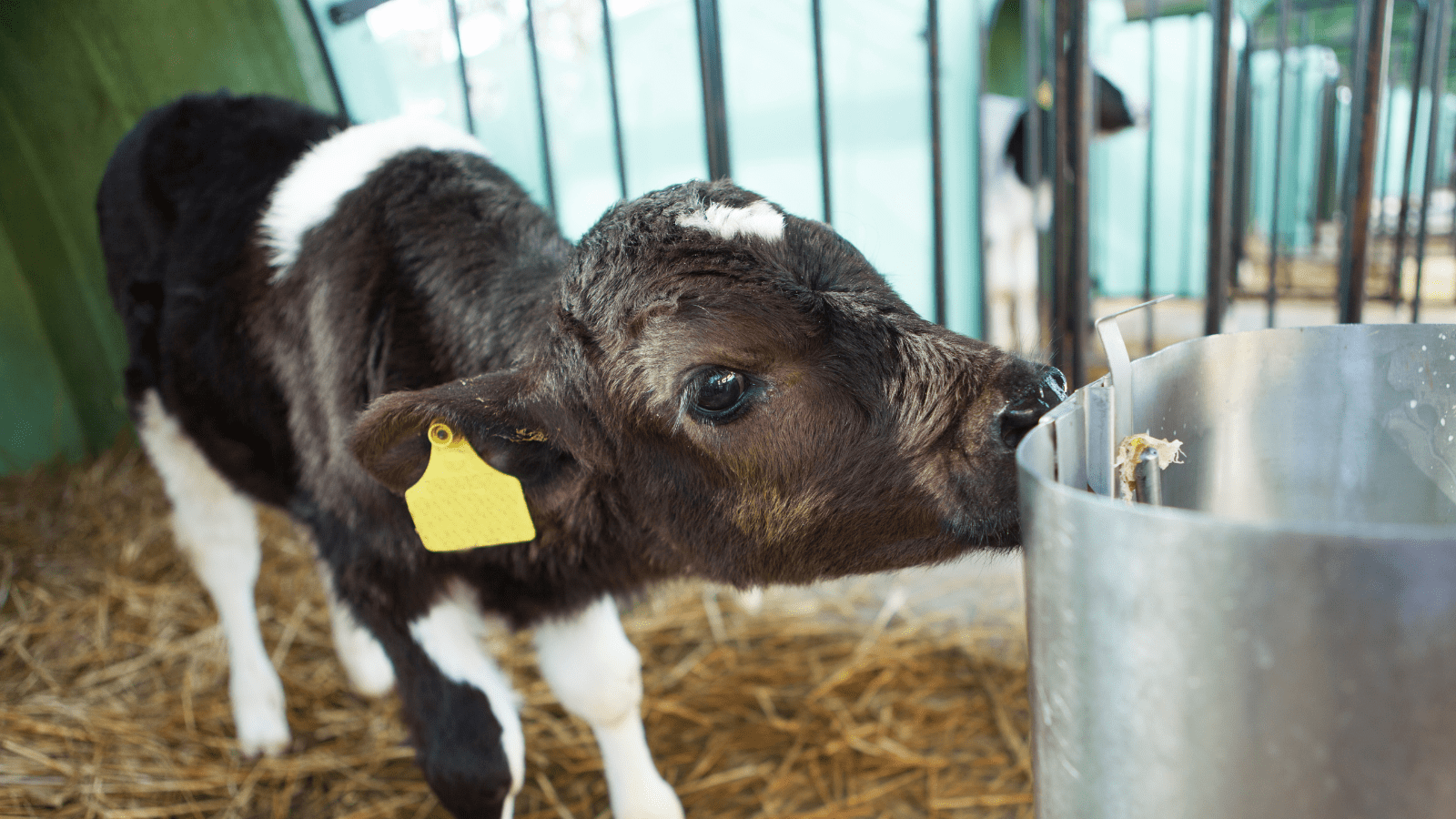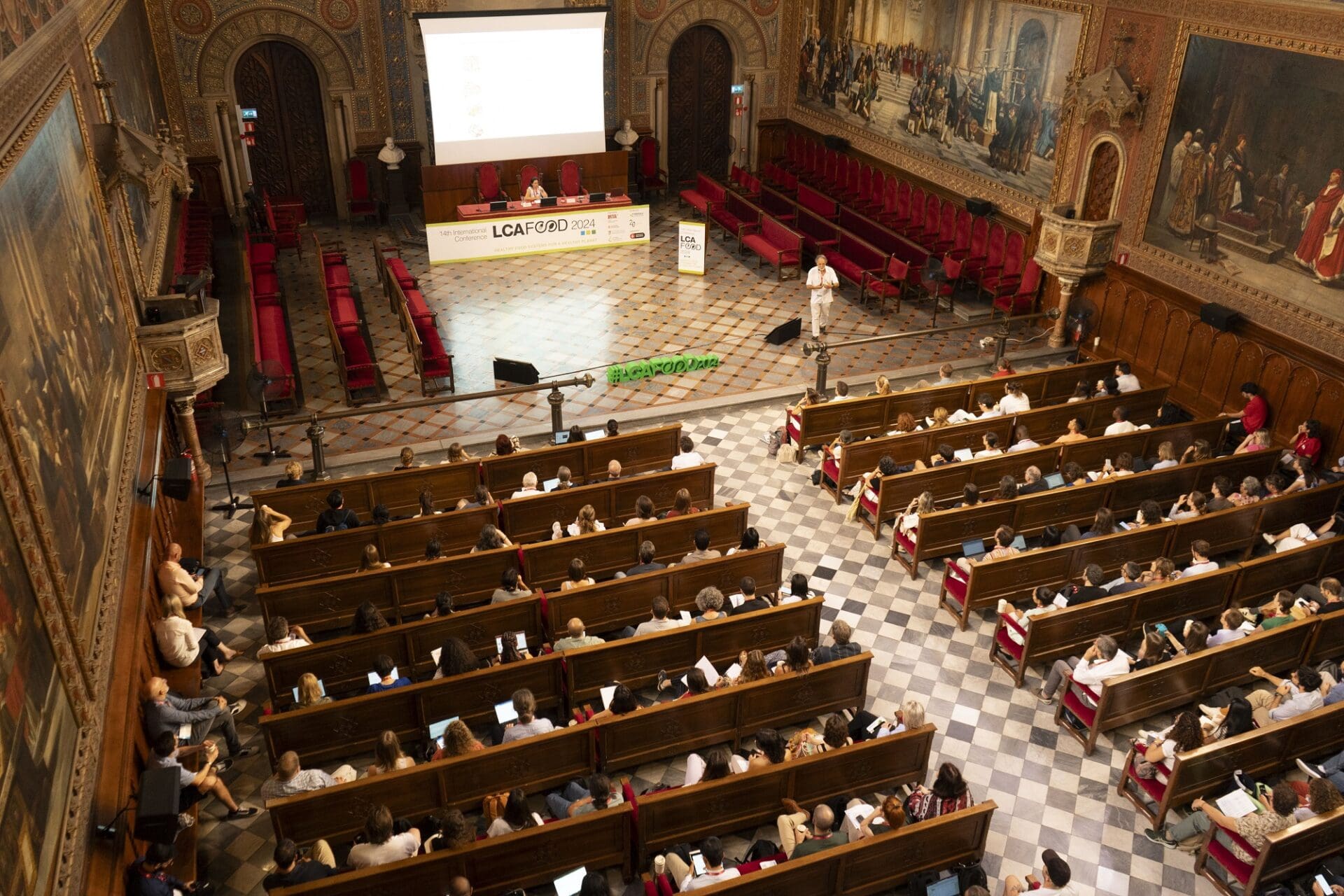
On Sunday 8 September, 2024, the participants in the 14th LCA Food Conference, arriving in Barcelona from all five continents, came together in a very original way: contemplating and forming part of castells, the human towers typical of Catalonia proclaimed Intangible Heritage of Humanity by UNESCO. A declaration of intent, because what these castells represent is our power to reach for the sky by working together.
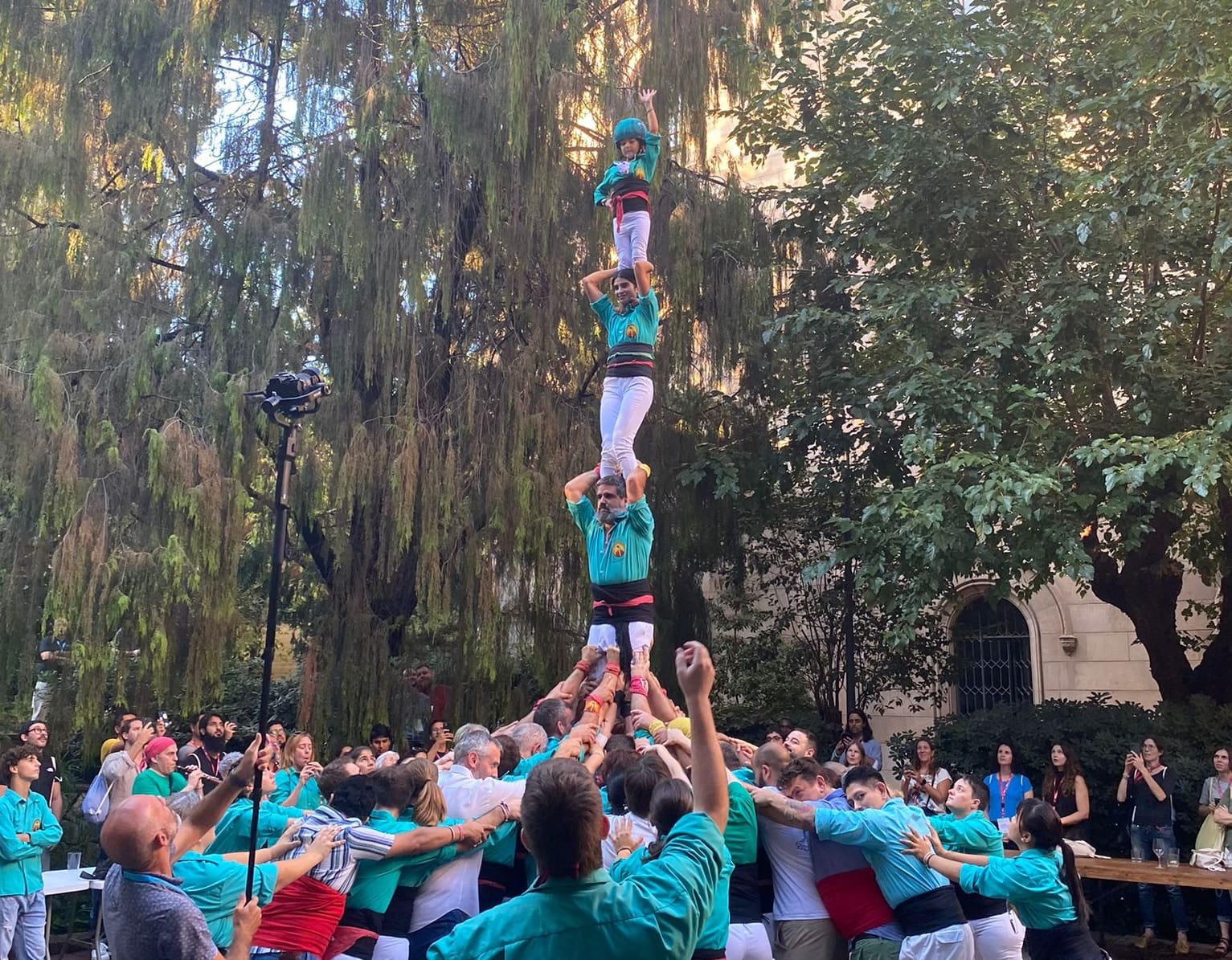
This was followed by three intense days of plenary sessions, project presentations and working groups in the Historic Building of the University of Barcelona (UB), the co-organiser together with the Institute of Agri-Food Research and Technology (IRTA) of this conference focused on calculating the environmental footprint of food.
If there was anything that the attendees would criticise, it was that many of these events overlapped in the schedule and it was difficult to go to everything they were interested in. There was a lot of science to share.
The Life Cycle Assessment (LCA) of food products has been studied for decades, but is now a fast-growing method all over the world. It seems crucial to understand how food systems should be in order to make the world more sustainable and healthier for future generations. Governments rely on it and many of them attended the conference. The media were also very interested, as shown by the coverage that this international meeting got in newspapers and on radio stations, including La Vanguardia, El Periódico and Radio Nacional de España.
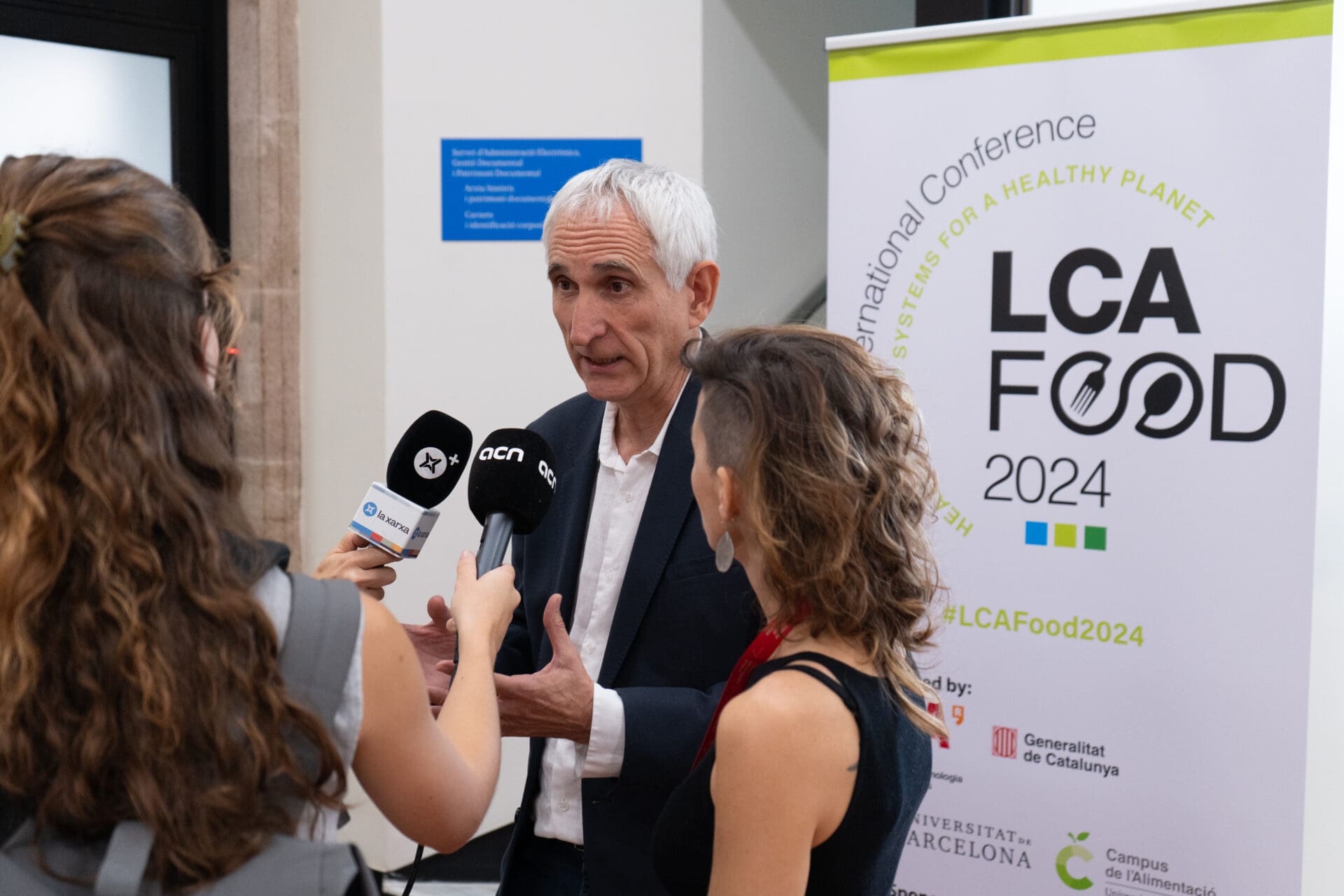
All this interest is reflected by the fact that this year's LCA Food had a record number of participants, nearly 500 people who came to Barcelona to present projects, listen and, especially, network. There was a lack of attendees from Africa and, in general, from the countries of the so-called Global South. However, it is remarkable how many of the participants were students from non-OECD countries. It is likely that many of these young professionals will present very interesting projects at future editions of LCA Food. The next one, in two years' time will be held in Montreal!
The plenary sessions focused the attendees who heard presentations from a number of very interesting speakers, including Louise Fresco, Marta G. Rivera, Llorenç Milà i Canals, Joan David Tàbara and Joan Romanyà. On top of this, three representatives from large multinationals in the sector, Nestlé, OSI and Unilever, shared their working methods and what they may need from LCA practitioners in terms of assessing the environmental footprint of the products they market, from the farm to the shops.
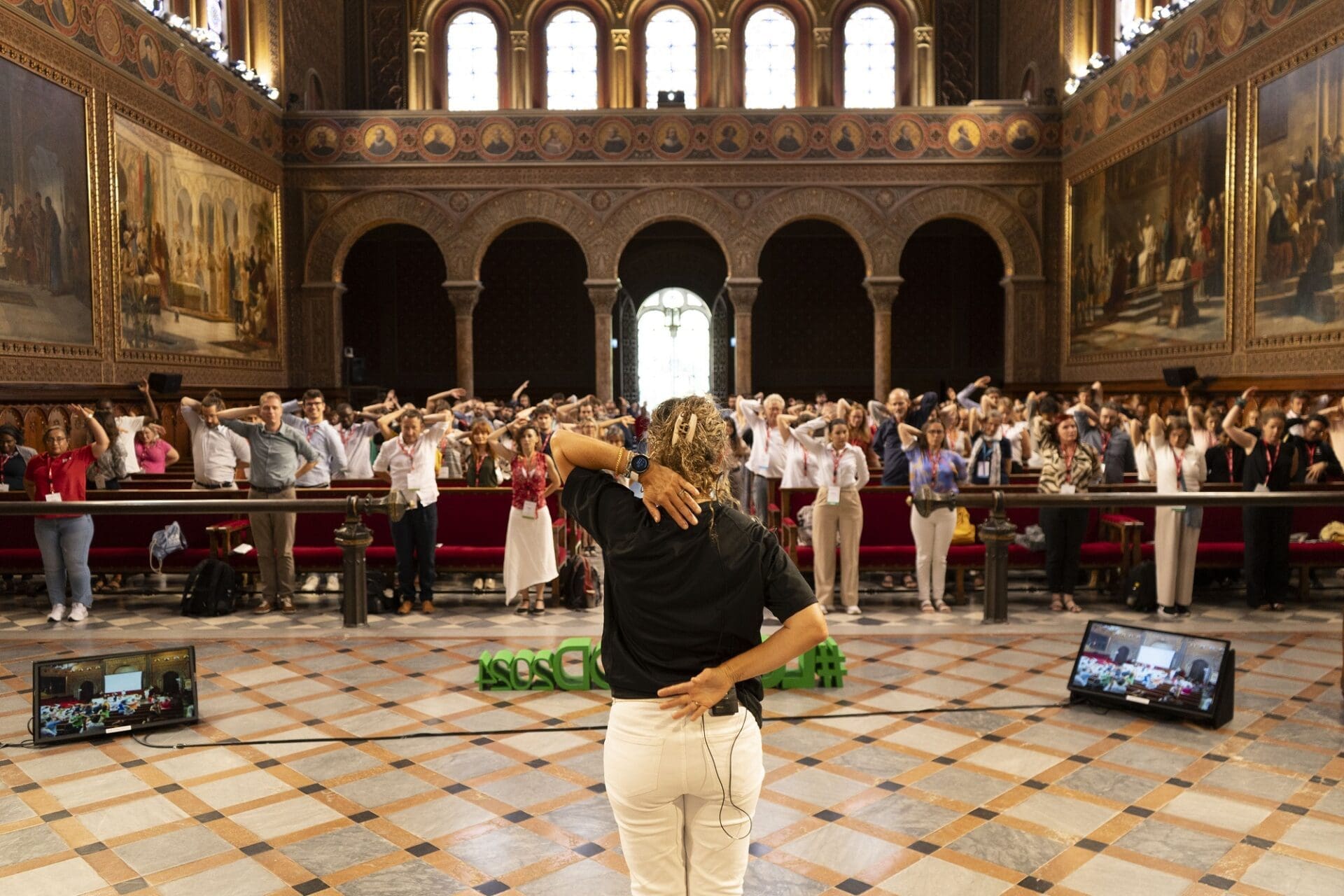
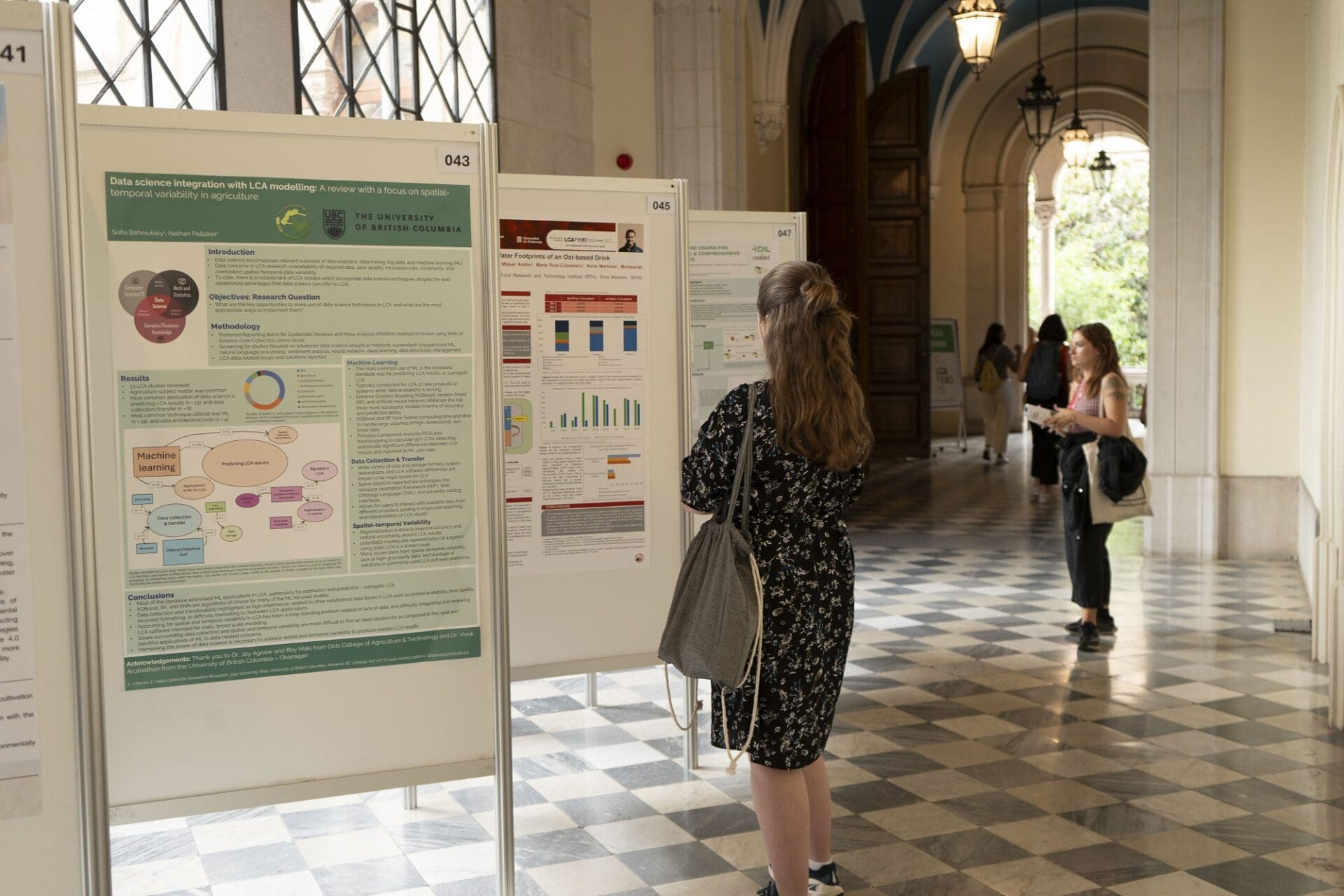
As for the parallel sessions and posters, it is impossible to highlight everything we would like to mention here. However, some topics were particularly relevant at this edition, and will probably be even more so in Montreal.
This was the case of nutritional LCAs, which show that we cannot separate environmental impacts from the nutritional quality of food. There is still a great deal of work to be done to find and test the ideal indicators for achieving this.
Also, eco-labelling is the buzzword of the moment, especially in Europe, and many studies are looking for the best way to communicate LCA results through a simple and easily comprehensible label.
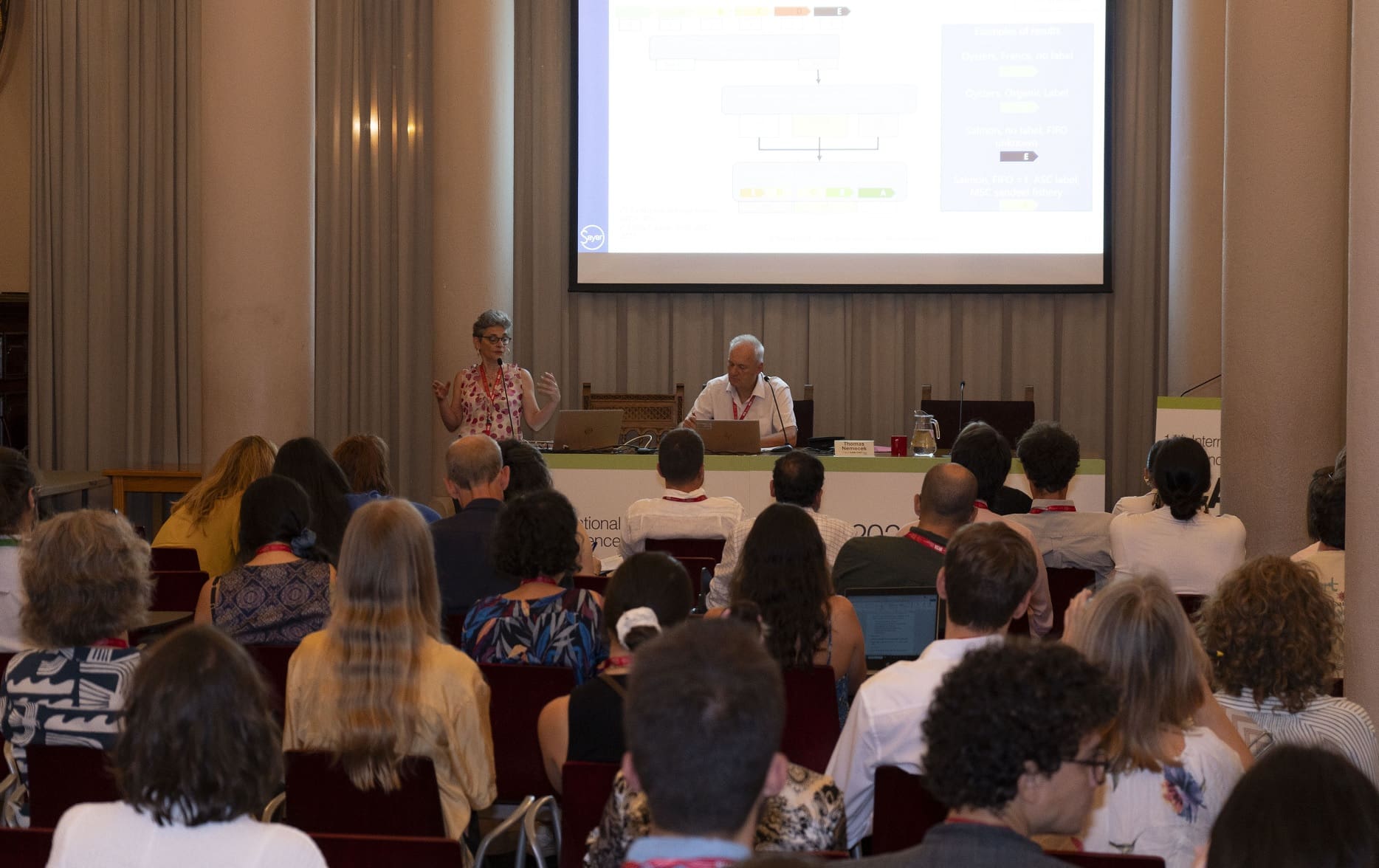
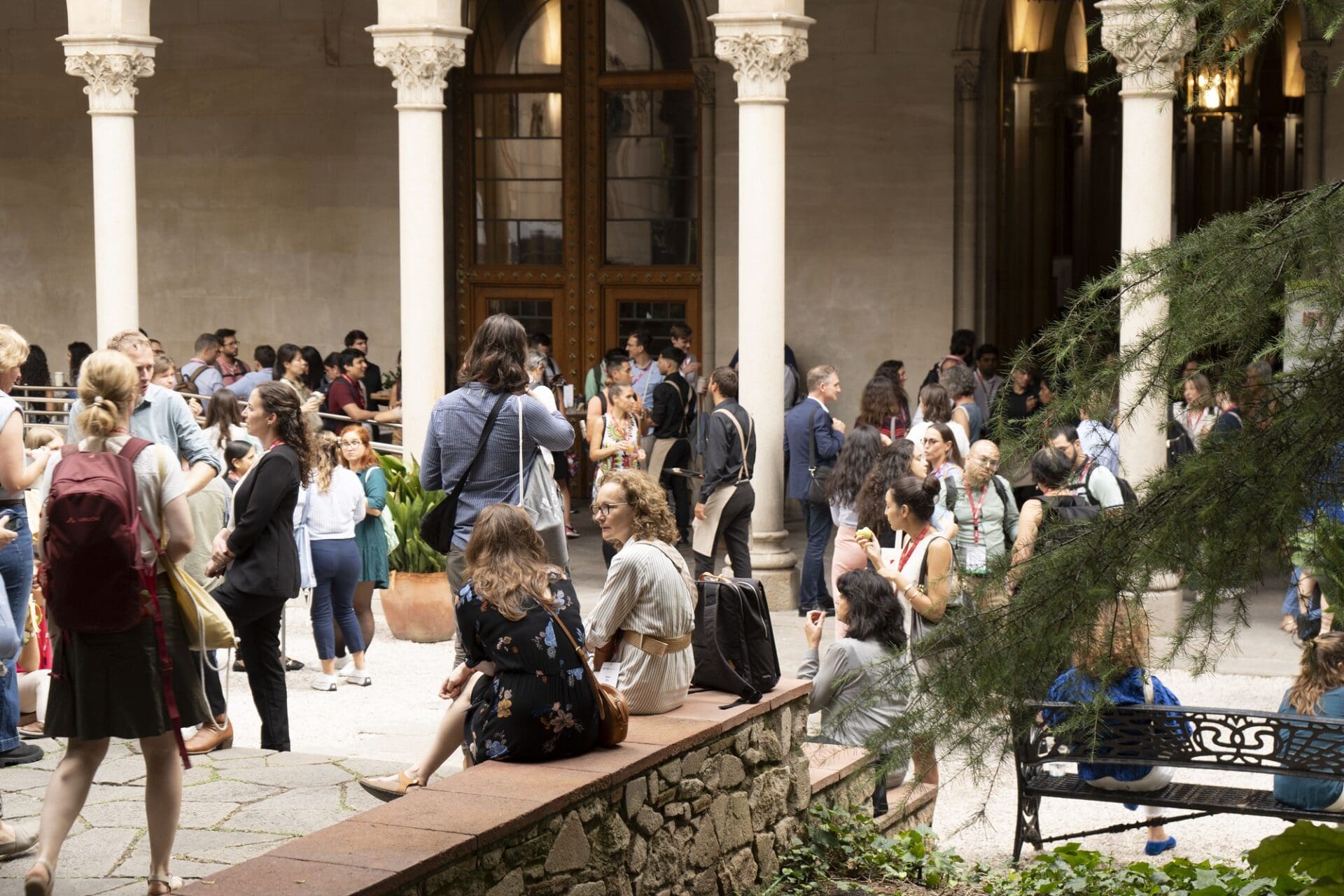
In addition, there is a growing interest in assessing the impacts of fisheries and aquaculture, once the ugly duckling of the conference. It will take a lot of work to measure the damage to marine as well as terrestrial ecosystems, but the community dedicated to this is growing, so we expect a number of new developments in the coming years.
And we could talk about many more issues, but we are short of space, so if you would like a more complete summary of all the science presented at the conference, we invite you to download the abstract volume, which will only be available on the website until June 2025, after which we will post it on the LCA Food conference series hub.
On the social side, the gala dinner was a sell-out and the gastronomic space in Barcelona's emblematic Estació de França hosted a fantastic party on the evening of 9 September, which also served as an ice-breaker. It was set to the melodies of a Catalan rumba group that got many people up on their feet to dance.
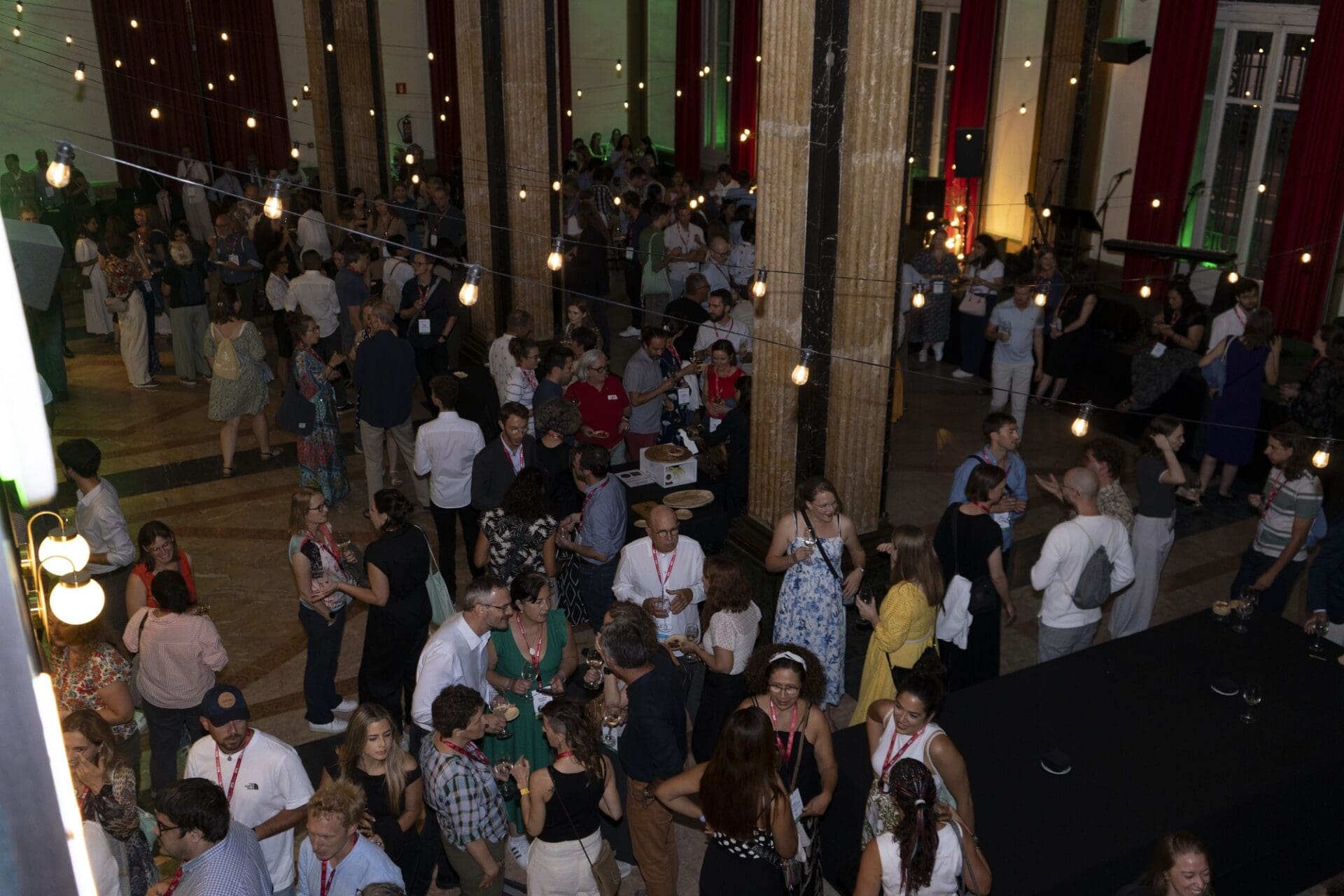
On the afternoon of the 10th, IRTA experts organised an oil tasting at the conference venue. The participants voted between two types of extra virgin olive oil and their combinations with dried orange and anchovies. Thanks to this, they were able to sample high quality products and at the same time became part of the cohort for a scientific study conducted by the IRTA.
And on the 12th, when the conference officially came to an end, a hundred people, divided into three groups, took the opportunity to visit three of the IRTA sites in Catalonia.
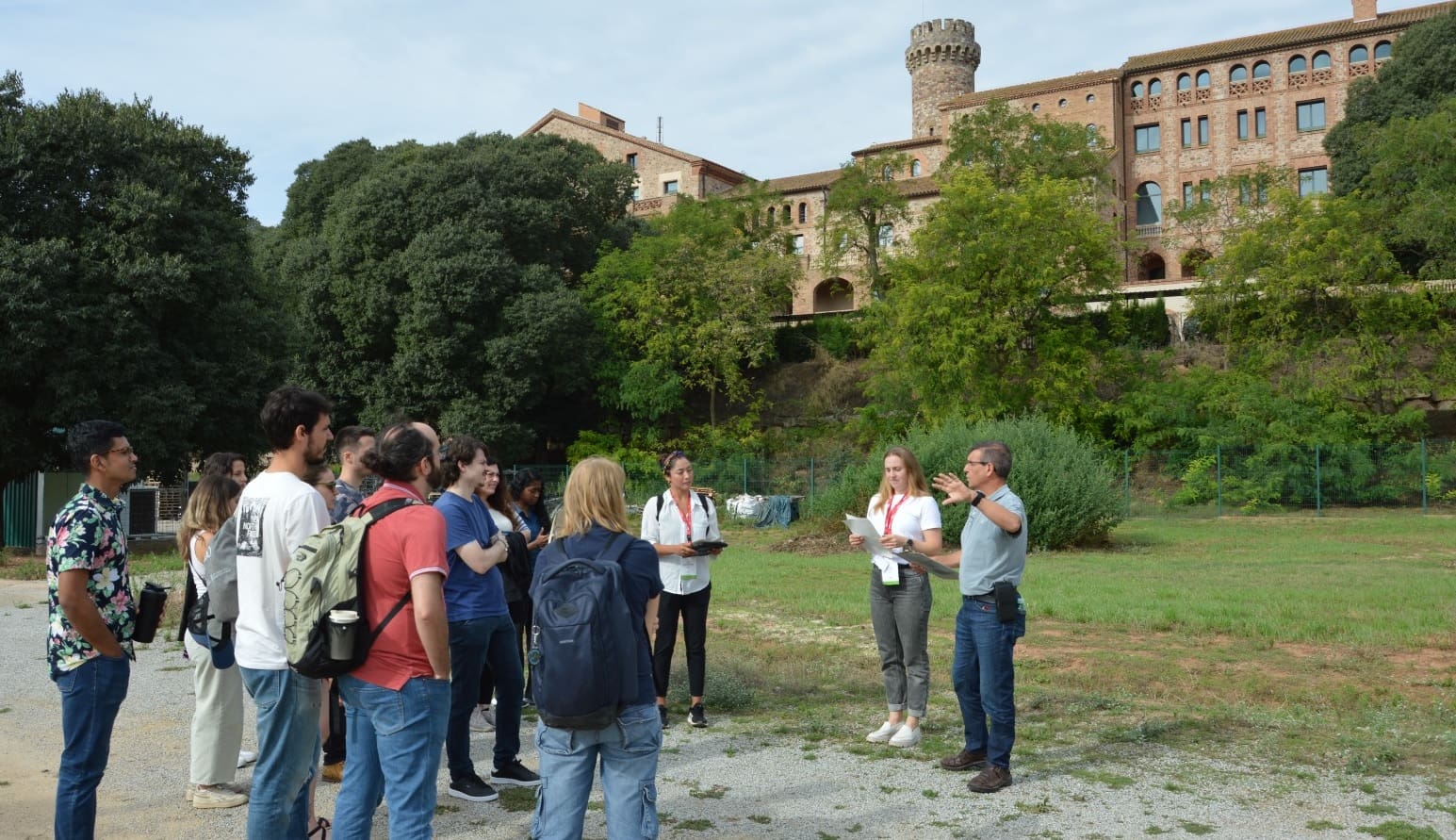
These visits allowed them to strengthen ties beyond the scientific intensity of the conference and learn about innovations in regenerative agriculture and carbon sequestration in vineyard cultivation; arable and woody crops; digitalisation and the automation of dairy farms; and the marine environment and aquaculture.
These five days in September 2024 were brimming with activity, the fruit of months and months of hard work, which we, the conference organisers, will always be grateful for. Thank you once again and see you all soon!
The organising team of the 14th LCA Food conference, 24 September, 2024.
Summary video:
Interview with the president of the congress, Montse Núñez:
https://www.irta.cat/en/interview-montse-nunez/

